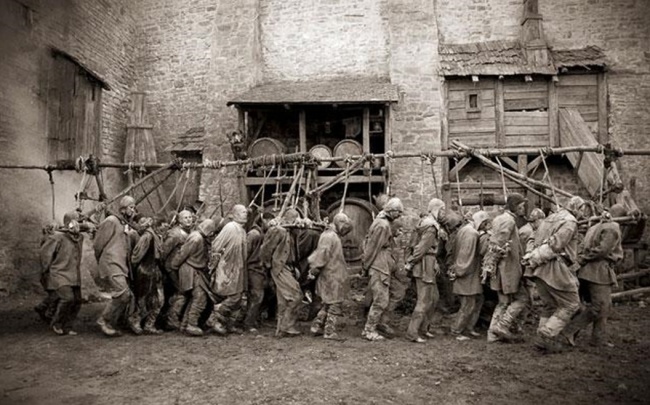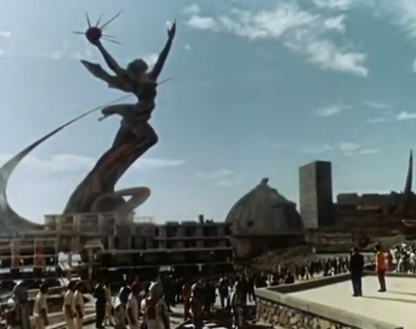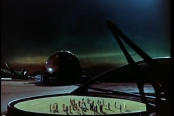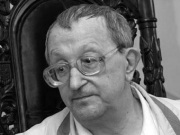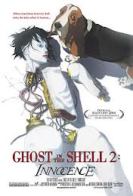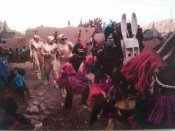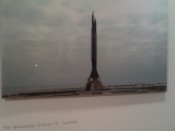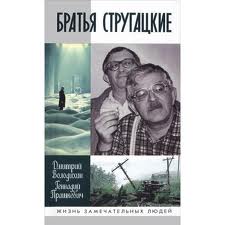 Kevin Reese on Boris Strugatsky’s career as a much-loved and influential writer and editor
Kevin Reese on Boris Strugatsky’s career as a much-loved and influential writer and editor
Boris Natanovich Strugatsky passed away on November 19th at the age of seventy-nine. Born on April 15th, 1933, Boris Natanovich lived through the Blockade of Leningrad, and, after the war, planned to become an astronomer. His dissertation fell apart, however, when it came to light that he was inadvertently duplicating the work of the work of the great Indian astronomer Subrahmanyan Chandrasekhar. He worked for several years as a computer programmer at the Pulkovo Observatory in Leningrad. While still employed at Pulkovo, Boris and his brother Arkady began to write in collaboration, a partnership so significant that they came to regard “the Strugatsky Brothers” as a single author, one that ceased to exist with the death of Arkady Natanovich in 1991. Together, they produced some of the most brilliant works of literature of the postwar era, including Trudno byt’ bogom [Hard to Be a God, 1963], Ponedel’nik nachinaetsia v subbotu [Monday Begins on Saturday, 1964], Piknik na obochine [Roadside Picnic, 1971], and Za milliard let do kontsa sveta [A Billion Years until the End of the World, translated as Definitely Maybe, 1974].
In the years following his brother’s death, Boris Natanovich made invaluable contributions to the historiography of the Strugatsky Brothers, providing copious background information (letters, commentary, interpretation) for each of the twelve volumes of their most complete collected works to date, published by Stalker between 2000 and 2003. This material, entitled Kommentarii k proidennomu [A Commentary to All that Has Passed], was published as a separate book in 2003.
Boris Natanovich published two novels—Poisk prednaznachenia [A Search for Purpose, 1995] and Bessil’nye mira sego [The Powerless of this World, 2002]—under the pseudonym S. Vititskii, having previously agreed with his brother that the Strugatsky name would be used only for works written in collaboration. He was generous to younger writers of science fiction, and in 2002  founded a journal, entitled Polden’ XXI vek [Noon, 21st Century], dedicated to publishing new Russian-language science fiction. This journal continues to be published to this day.
founded a journal, entitled Polden’ XXI vek [Noon, 21st Century], dedicated to publishing new Russian-language science fiction. This journal continues to be published to this day.
Due to declining health, Boris Natanovich was reluctant in his later years to meet with fans face-to-face, but made himself available online on the website “Russkaia fantastika.” His answers to thousands of questions were recently published as Interv’iu dlinoiu v gody [An Interview Years in Length, AST, 2009]. Compiled by Svetlana Bondarenko, one of the editors of the Stalker collected works, this book is a testament to Boris Natanovich’s essential kindness. In it, he, patiently and in great detail, answers questions not only on the works of the Strugatsky Brothers, but also their and their parents’ lives, not to mention Russian politics and culture. Boris Natanovich was answering questions on the website as recently as early November, and the abrupt end of this decade-long “interview” is deeply saddening to those who have come to rely on his regular posts.
In their 1970 novella Malysh [The Boy], the Strugatskys write about their minor character the captain Ikov Vanderkhuze, “this weakness of his was well known, a love for familiar places” [известна была за ним такая слабость — любовь к насиженным местам]. Boris Natanovich had a similar weakness, but this did not stop him from co-writing works that confront some of the most painful and difficult aspects of human existence. Even after the Soviet era has faded out of living memory, these novels will continue to be read.
I know that I speak for all of Boris Natanovich’s readers when I say how much he will be missed. Светлая ему память!
Kevin Reese, UNC Chapel Hill
Yvonne Howell on Boris Strugatsky: ‘a life of incredible decency and wisdom’
The Strugatskys’ writing was never “just about the fate of an idea…” (a generic problem that renders so much science fiction flat), but always concerned with “the fate of real people.” One of my favorite moments occurs at the beginning of Za milliard let do kontsa sveta, when the hero, Malianov, is pretty excited about how close he’s getting to solving an all-but-insoluble problem he’s been working on for days, and he feels the final, brilliant solution creeping around the edges of his consciousness — he’s really just about to get it! He even starts to congratulate himself, because nobody else is around to pat him on the back, so he does it himself: “Malianov, now there’s an idea! Not bad at all, you genius, you!” ( a free translation of the original, Ай да Mалянов! Ай да молодец! Наконец-то, кажется, что-то у тебя получилось). I know I’ve done just the same thing, standing in the kitchen anticipating my genius-hood! And I know that just like Malianov, I’ve actually never made good on the promise of that great idea, because the cat was hungry and wanted food, and the refrigerator seemed wanting (even in the U.S.!) and I went to the store instead, thinking that I’d get back to my brilliant idea later. How did the man none of us ever met (Boris Strugatsky was nice about email, but not somebody who would come out to meet you in person), have such a broad and deep understanding of all of us? He especially understood how people can imagine they live in a world that seems always on the brink of disaster — unless we can think our way out of this social conflict, or this environmental crisis…. in time? On the one hand, the Strugatskys are the guys who seemed to foresee and even give names to abstract geopolitical situations, far in advance. Roadside Picnic, with its contaminated Zone and its Stalkers materialized ten years later at Chernobyl. I have a friend who still works in a Russian zoological institute, and the last time I saw him, he swore up and down that the landing dock we passed on the way to his office was really used to unload booze and other things, “exactly exactly the way it’s described in Ponedel’nik nachinaetsia v subbotu.” For my friend (who just wrote a book depicting the ambitious future of biological cloning), the world the Strugatskys described in Ponedel’nik is the blueprint for his “real” life, and not vice versa. And on the other hand…. the Strugatskys captured the smallest quirks of earnest Soviet astronomers and physicists in such a way that we feel a kinship with these people and their meowing cats. At the risk of invoking horrible sentimental clichés, the Strugatskys’ works help us understand how much we are all interconnected, as are the societies we live in. Less clichéd — Boris Strugatsky was a real public intellectual. A model of humor, humility, and honesty. I always wonder — where do people like this come from? Is it genes? Is it upbringing? Obviously a dash of both and none of either. I think Boris Strugatsky liked this question — when the world turns up good people, in all places, times, ethnicities, and circumstances…. where does the goodness come from? We don’t really know, but we know it when we see it. To invoke another cliché — his passing marks the end of an era. However, he left so many great books behind, not to mention a life of incredible decency and wisdom, that we can still celebrate the fact that we all feel like we knew him in our own way.
Yvonne Howell, University of Richmond
 The first is Nikolai Krementsov’s long-awaited survey of the interaction between early Soviet science and fiction, Revolutionary Experiments: The Quest for Immortality in Bolshevik Science and Fiction. See full details and order a copy from the publisher’s website, here. The cover illustration looks as if it may owe some inspiration to this blog’s home image!
The first is Nikolai Krementsov’s long-awaited survey of the interaction between early Soviet science and fiction, Revolutionary Experiments: The Quest for Immortality in Bolshevik Science and Fiction. See full details and order a copy from the publisher’s website, here. The cover illustration looks as if it may owe some inspiration to this blog’s home image!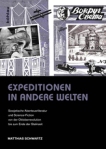 The second book is equally long-awaited and fascinating (although unfortunately, for now, available only in German): Matthias Schwartz’s Expeditions into Other Worlds: Soviet Adventure Literature and Science Fiction from the October Revolution to the End of the Stalin Era. Here is the publisher’s blurb in English translation:
The second book is equally long-awaited and fascinating (although unfortunately, for now, available only in German): Matthias Schwartz’s Expeditions into Other Worlds: Soviet Adventure Literature and Science Fiction from the October Revolution to the End of the Stalin Era. Here is the publisher’s blurb in English translation: